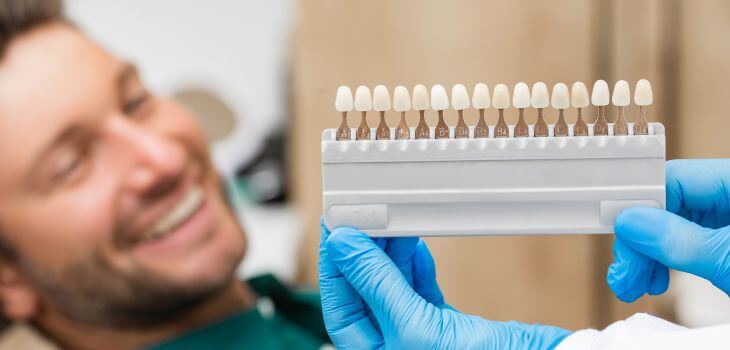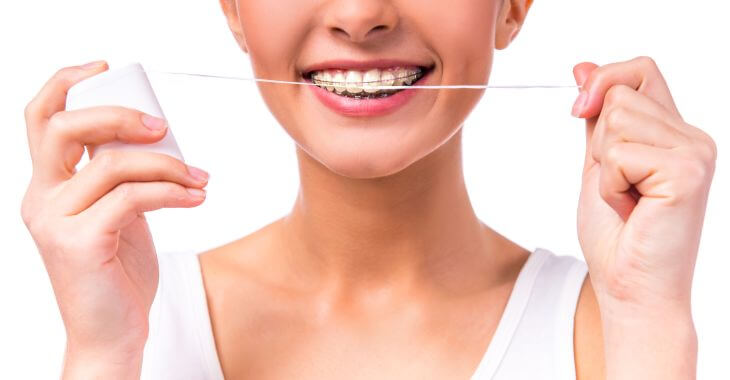Is Tooth Sensitivity After a Filling Common?

Most people will experience cavities that require a filling. A cavity filling dental treatment is effective at removing tooth decay and restoring the tooth for normal function. After a cavity is removed and filled, most patients can resume normal oral functions, but some people may experience side effects from their treatment. For some patients, tooth sensitivity after a cavity filling may occur. Is tooth sensitivity after a filing common and how long does it last? Here is what you need to know about tooth sensitivity after a dental filling.
Dental fillings for cavities are a minimally invasive dental treatment that can be performed in one visit to a dentist. In most cases, the tooth is numbed with a local anesthetic injection and a dental drill is used to remove the decayed tooth material. A dental filling is used to replace the removed tooth enamel and dentin – this can be amalgam (metal) or composite (resin) fillings. Once the filling hardens, the tooth can be completely functional again. However, it is normal for the tooth to be sore and there can potentially be tooth sensitivity after a cavity filling.
What Causes Tooth Sensitivity After a Filling?
While dental fillings are a common procedure, they do change the structure of the tooth and cause mild trauma. Removing the decay and adding the filling material may irritate the tooth and require some time to overcome. While not everyone will experience tooth sensitivity after a cavity filling, it is one of the more common side effects from this procedure. Some of the reasons this occurs:
- The procedure causes inflammation in or around the tooth, which can irritate the nerves in the tooth, resulting in sensitivity.
- Pulpitis is an inflammation of the tooth pulp that surrounds the nerves inside the tooth, which can cause tooth pain and sensitivity.
- Bite misalignment after a filling can put pressure on the tooth and cause sensitivity.
The chance of tooth sensitivity after a filling increases with larger or deeper fillings. When more tooth material is removed or drilling occurs closer to the tooth nerves, it is more likely to cause irritation or inflammation that will trigger discomfort or sensitivity after the procedure.
Symptoms of Tooth Sensitivity After a Cavity Filling
Many people recover quicky from a filling and can resume normal eating and beverage consumption without any sensitivity or discomfort. For others, there can be some tooth sensitivity when chewing or if the tooth is exposed to different temperatures or substances. Tooth sensitivity is a short-lived sensation that feels cold or like a shocking pain when the tooth is exposed to certain elements. Common elements that can cause these sensations after a filling include:
- Sugary or acidic foods or beverages can trigger discomfort.
- Tooth sensitivity to hot or cold after a filling can be caused by drinking hot or cold beverages.
- Air hitting the tooth can cause pain or cold sensation.
- Eating cold foods like ice cream can trigger tooth sensitivity.
- Biting down on the healing tooth can cause temporary shocking sensations.
Tooth sensitivity after a cavity filling is common, but symptoms usually do not last for long. As the tooth heals, the inflammation or aggravation of the nerves dissipates and the sensitivity decreases. In most cases, tooth sensitivity caused by a filling will fade within several days after the procedure. Avoiding triggers can reduce discomfort and some dentists will suggest using a toothpaste for sensitive teeth to reduce tooth irritation.
What If I Have Tooth Sensitivity Months After a Filling?
While tooth sensitivity after a dental treatment like a cavity filling is common, it should not last for several weeks or months. If you have tooth sensitivity months after a filling, you may have other dental issues. Pulpitis caused by a filing that causes tooth sensitivity can be reversable or irreversible – the irreversible pulpitis can lead to permanent damage to the tooth nerves and may require a root canal. There are also other issues that could be causing discomfort and sensitivity, like abscesses, broken fillings and gum disease.

If you have tooth sensitivity to hot or cold after a filling that lasts for months, you should contact your dentist. There may be a secondary issue causing your discomfort that requires treatment. Your dentist can perform a thorough exam to determine why you still have tooth sensitivity months after a filling and recommend a treatment solution.
Tooth sensitivity after a filling is common, especially to hot and cold, but it should not last for long. Adhere to your dentist’s recommended aftercare instructions to reduce discomfort and irritation of your treated tooth to minimize sensitivity. If you continue to experience tooth sensitivity or discomfort after a cavity filling, call your dentist’s office to discuss whether you need a follow up appointment.
The information provided on this website, including text, graphics, images, and other materials, is intended solely for informational purposes and should not be used as a substitute for professional medical advice, diagnosis, or treatment.



)